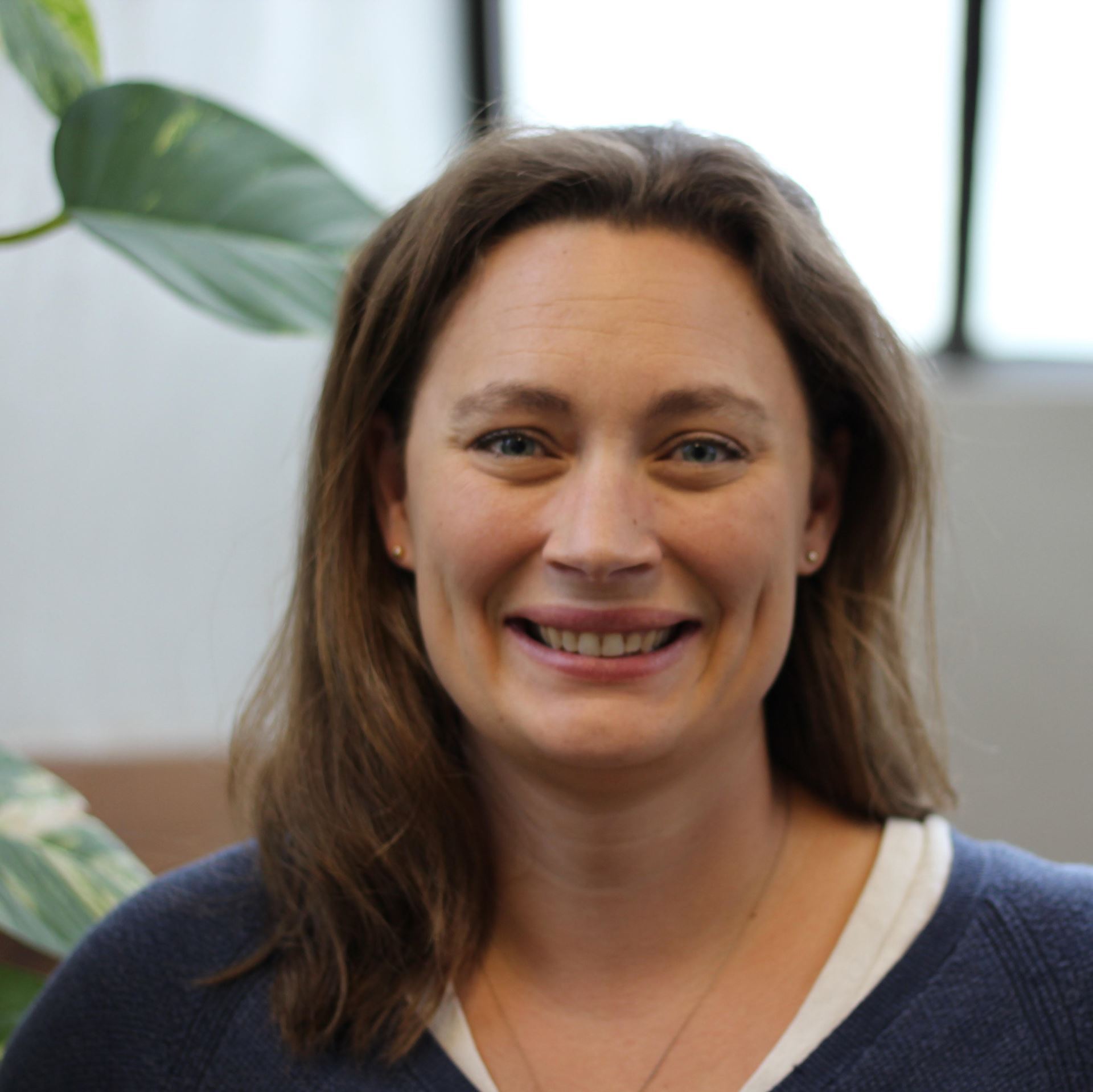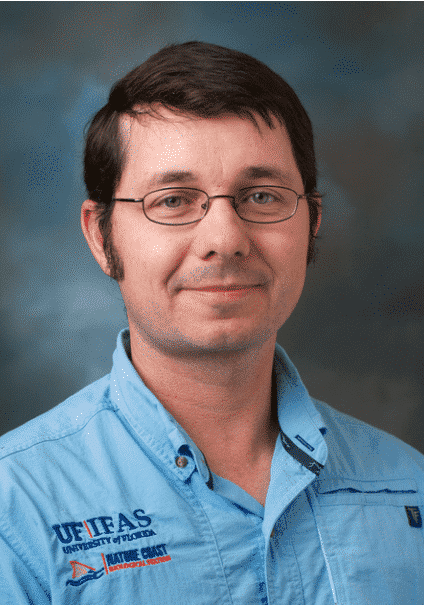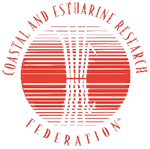GERS Board
2025 - 2026
President
|
Past PresidentDr. Charlie MartinThe Dauphin Island Sea Lab |
Candidates
President-Elect
Ben Walther
Professor & Assistant Chair, Texas A&M University
I am a Professor of Marine Biology in the Department of Life Sciences at Texas A&M University – Corpus Christi. I currently serve as a Member-at-Large on the CERF Governing Board. In that role, I have been actively engaged with several CERF priorities, including serving as a member of the Publications & Communications Committee, the Search Committee for Estuaries & Coasts Editors-in-Chief, and the Equity in Awards Taskforce. I served as a Member-at-Large for the Gulf Estuarine Research Society (GERS) from 2021-2023. I have also helped organize the biennial meetings of CERF as Scientific Program Committee co-chair (2021) and Workshops Committee co-chair (2019). My research focuses on quantifying the movements and ecological interactions of mobile fishes and their responses to hypoxia. I received a B.A. in Liberal Arts and a B.S. in Biology from the University of Texas at Austin, followed by a Ph.D. in Biological Oceanography from the MIT/Woods Hole Oceanographic Institution Joint Program. I then completed two postdoctoral fellowships in Australia at the University of Adelaide and Australian National University before returning to the United States to begin my faculty positions in 2009.
I would be excited to serve as President Elect for GERS. There has never been a more crucial time for GERS to passionately advocate for our community. We conduct vital research that expands our fundamental understanding of the function and value of healthy ecosystems. Our work is essential for effective policy and management that seeks to conserve or restore resources that support coastal communities. GERS is made up of a diverse and vibrant array of students, professionals, scientists, academics, managers, policymakers, community members, and beyond who collectively give voice to the incredible work we all do to understand and protect coastal and estuarine systems. I would work to strengthen ties between GERS and CERF during my term. My goal would be to effectively offer support for our community members in our region while bringing attention to our members’ needs and goals at the national and international levels. The strength of GERS has always been its welcoming and supportive atmosphere for students and early career members. I have seen how important GERS and CERF are for my own students as they embark on their own careers. I will work hard to continue making GERS a home for future generations of our strong and vibrant community.
Songjie He
Assistant Professor, University of Southern Mississippi
I am a broadly trained biogeochemist who uses a variety of field and laboratory methods and an interdisciplinary approach to better understand the transport and transformation of carbon, nutrients, and trace metals across the river–wetland–estuary–coastal ocean continuum and the atmosphere. I received my Ph.D. in aquatic biogeochemistry from Louisiana State University in 2018, where my research focused on the transformation and fluxes of carbon, nutrients, and trace metals in coastal rivers. After completing my dissertation, I expanded my work into coastal wetlands, estuaries, and coastal oceans—particularly the carbon biogeochemistry of these systems. My research emphasizes the role of both lateral and vertical carbon fluxes in the coastal carbon budget across salinity gradients, as these fluxes are closely linked to wetland loss, climate change, and coastal acidification. My work in biogeochemistry and environmental chemistry has resulted in 22 peer-reviewed publications, which have collectively received approximately 350 citations. I am currently an Assistant Professor in the School of Ocean Science and Engineering at The University of Southern Mississippi.
I have been a member of the Coastal and Estuarine Research Federation (CERF) since 2019, when I attended my first CERF Biennial Conference. I also attended the 2023 meeting and plan to participate in the upcoming conference in Richmond, Virginia. While attending these meetings has been a wonderful way to connect with others in the field, I am interested in serving on the Gulf Estuarine Research Society (GERS) leadership team because I am passionate about estuarine and coastal science and would like the opportunity to network and serve the community in this regional society in a more meaningful and comprehensive way.
Secretary-Treasurer
Kim de Mutsert
Associate Professor, University of Southern Mississippi
I am an Associate Professor in the Division of Coastal Sciences of the School of Ocean Science and Engineering at the University of Southern Mississippi. Born and raised in the Netherlands, I moved to the US to pursue a PhD in Oceanography and Coastal Sciences at Louisiana State University after graduating with an MS in Biology from the University of Amsterdam in 2003. My research focus is fisheries ecology and ecosystem modeling in coastal and estuarine systems. I have always been fascinated by how organisms can thrive in these dynamic environments and how changing environmental factors affect fish and shellfish in areas where salt and freshwater mix.
I attended my first CERF meeting as a PhD student in Norfolk, Virginia in 2005, and have been an avid CERF-er since. I became a GERS member soon after, and attended two GERS meetings until I left the Gulf Coast. After I finished my PhD and a post-doc at LSU, I started as an Assistant Professor at George Mason University in Virginia in 2011. I became active in the affiliate society AERS as a Member-at-Large from 2018-2021, and I hosted an AERS meeting in 2019 as the Associate Director of the Potomac Environmental Research and Education Center. I am active in CERF as well, serving as the Workshops Chair on the Program Committee of the 2021 and 2023 CERF meetings, as the Chair of the DEIJ Award Sub-Committee in 2023, the Chair of the Equity in Awards Task Force in 2024, and the Chair of the CERF Achievement Awards right now.
I have been back on the Gulf Coast since 2021, and became a GERS member again right away. I have attended and presented at two GERS meetings since and have served as judge during those meetings. I am looking to become more active in GERS, and feel I can contribute most by serving as Secretary-Treasurer. While I have not served in this role before, I would bring a vast service background to GERS. To those still reading, I feel this is the place to admit that I secretly love creating and balancing budgets as part of the proposal writing and grants management process. Managing a large research program, I need to make sure the funding is allocated appropriately and timely to maintain a highly functional lab. I intend to apply these skills to the role of GERS Secretary-Treasurer if elected.
Student Representative
Allison Noble
PhD Candidate, Louisiana State University
Hello! I am a marine ecologist currently pursuing my PhD through LUMCON and the College of the Coast and Environment at LSU. My current research uses a variety of approaches, including acoustic recordings, biogeochemical analysis, and traditional trapping, to examine how trophic dynamics change within and around artificial structures in the estuaries of southern Louisiana.
When not diving in the mud, I have been serving as Seminar Committee Chair in the Coast and Environment Graduate Organization at LSU for the past two years. In this position, I have brought focus to graduate student research through student-highlight seminars, increasing the visibility of students to faculty and administrators. I have used our seminars as an opportunity to connect with new students in our department, as the weekly seminar series is one of the first and most frequently recurring events for graduate students to attend. I have also taken advantage of membership on the CEGO board to advocate for student needs to our administrators and plan events to improve our graduate students’ experiences.
I have been fortunate enough to attend the last two GERS meetings and have been truly impressed by the emphasis on graduate student research and networking opportunities. I appreciate how accessible the meeting is to students, especially first-time presenters. As GERS Student Representative, I would like to give back to this community, while increasing accessibility by providing more targeted events towards students and improving communication among students from different schools and departments. Events such as a graduate student lunch at the biannual GERS meeting would go a long way toward promoting interinstitutional connections, while smaller events such as virtual professional development workshops or panels throughout the year can provide regular avenues of learning, support, and connection. GERS already has an incredible student membership; I would be honored to advocate for their interests as the next Student Representative.
Ariel Alonso
PhD Candidate, University of New Orelans
My name is Ariel Alonso, and I am currently pursuing a PhD in Marine Biology at the University of New Orleans. My research focuses on the effects of sound on the auditory and metabolic functions of Atlantic croaker. Growing up on the water and spending my entire life fishing has instilled in me a deep appreciation for the Gulf Coast. I am enthusiastic about the opportunity to serve as a student representative for GERS, as this role will allow me to develop strong leadership skills, advocate for my interests, and collaborate with a dynamic team to build a valuable network. Serving in this capacity would enable me to connect with new individuals and gain insights from a leadership perspective in shaping the society, as well as bringing back knowledge and insights to my colleagues in the lab. It would be a privilege to act as a student representative for the Gulf Estuarine Research Society.
Member-at-Large
Adam Searles
Postdoctoral Scholar, Florida State University Coastal and Marine Laboratory
My name is Adam Searles and I am an incoming postdoctoral scholar at the Florida State University Coastal and Marine Laboratory. I will receive my PhD in Interdisciplinary Ecology from the University of Florida in August 2025. My research focuses heavily on the ecology of estuarine biogenic habitats, global change ecology, and fisheries ecology.
I joined GERS in 2020 and have enjoyed becoming involved in society events. I hope to become even more involved by serving as a member-at-large. I hope to use my teaching and student mentoring experience to inform innovative ways through which GERS can support and encourage the involvement of students and early career professionals in society events. I also aim to help increase membership and engagement across a diversity of academic, state, and other institution types.
Jessica Pruett
Postdoctoral Research Associate, Mississippi Based RESTORE Act Center of Excellence at The University of Southern Mississippi.
I am interested in serving as a Member at Large for the Gulf Estuarine Research Society (GERS) because I greatly value the unique role of the organization in connecting researchers, practitioners, and students to address critical estuarine and coastal issues in the Gulf region. I believe GERS is a powerful platform for advancing scientific understanding and stewardship in the Gulf and I would like to actively contribute by supporting inclusive regional participation, enhancing student engagement, and helping the Society continue to lead in addressing emerging environmental challenges across Gulf Coast estuaries. Serving in this role would allow me to give back to the scientific community that has shaped my own professional growth and to help create opportunities for others, particularly students, to engage, collaborate, and thrive within an active network dedicated to the health and resilience of the Gulf Coast.
Victoria Congdon
Research Coordinator, Mission-Aransas National Estuarine Research Reserve
I am a Research Coordinator (RC) at the Mission-Aransas National Estuarine Research Reserve (MANERR) located at the University of Texas Marine Science Institute in Port Aransas, TX. I received a B.S. in Marine and Freshwater Biology from the University of Texas at Austin, and a Ph.D. in Marine Science from the University of Texas at Austin Marine Science Institute in 2021. My role as RC involves developing and actively participating in ecological research and monitoring programs that advance our knowledge and understanding of coastal ecosystems, habitats and natural resources. My work is strongly oriented towards conducting broad-scale field surveys and working with long-term monitoring datasets, with a strong emphasis on seagrasses and water quality. Leading long-term and region-wide monitoring efforts has provided me with a unique opportunity to collaborate and work closely with resource managers and partners at various state/federal agencies and organizations. Prior to working at the MANERR, I worked as an Associate Research Scientist at the Fish and Wildlife Research Institute located in St. Petersburg, FL. While located there, I was involved with the Fisheries Habitat Assessment Program, one of the longest running seagrass monitoring programs, and several seagrass restoration projects. As RC at the MANERR, it is my mission to develop and facilitate partnerships that enhance coastal decision making through an integrated program of research, education and outreach, and stewardship.
I am fortunate to have incredible mentors supporting and encouraging me along my professional journey. It was these mentors who introduced me to the warm and welcoming faces of the GERS community as a graduate student. My role at the MANERR has deepened my appreciation for the importance of collaborative networks like GERS in promoting estuarine research and translating science into meaningful coastal management and education outcomes. As a GERS Board member, I would contribute the experience I have gained in creating and maintaining regional collaborations to connect science and people. As Member-at-Large, I will work hard to help build a diverse membership, with a strong focus at the student level. Most importantly, I want to make a young student, attending a conference or presenting for the first time, feel welcomed and encouraged just as I had felt when first introduced to the GERS family. I am excited at the prospect to help shape a future that prioritizes equity, collaboration, and community-driven impact, and am eager to contribute to the GERS community.


